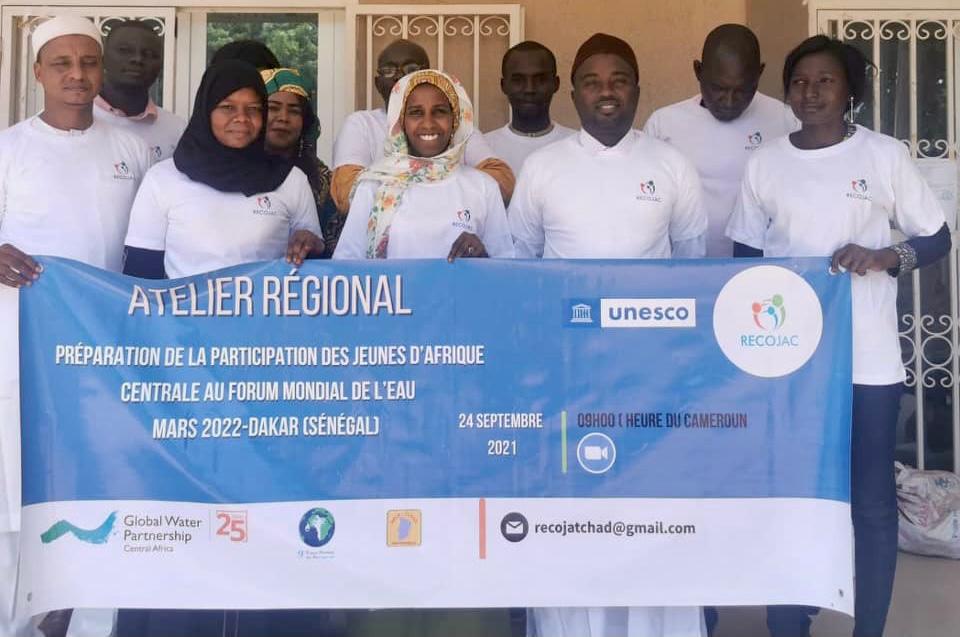Several stakeholders attended the hybrid workshop chaired by the coordinator of RECOJAC, Dr. Nken Michele. Some of them include ; UNESCO Cameroon represented by Dr. Nsom Annie Claude, coordinator of the science sector, RECOJAC partners, representatives of the winning projects of the first phase of CAY-DAKAR2022, media representatives amongst others. The workshop featured the presentation of the three youth-led winning projects funded by UNESCO, discussions with the youth cell of the World Water Forum and the election of national and regional executives of RECOJAC.
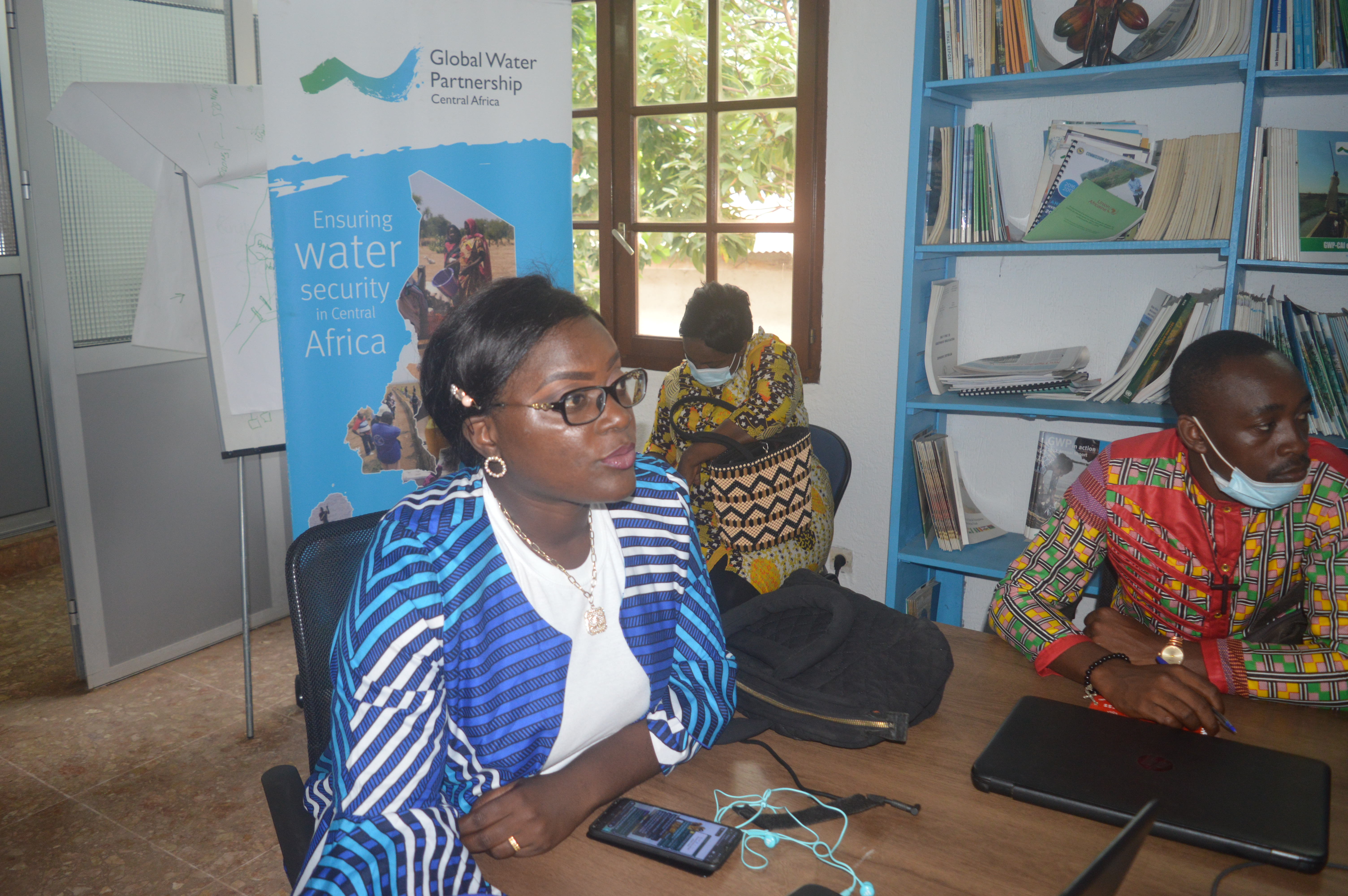 The three youth projects shared a common objective - that of facilitating access to water resources. The Cameroonian project led by the Codas Caritas association aims to improve access to portable water through the use of moringa seeds for purification. The project originates from the lack of portable water in the Mayo-Danai department (Far North Region) which led to an increase in water-borne diseases. The implementation of this project has not only allowed the development of moringa plantations, but also the sensitization of local communities with messages on the fight against waterborne diseases.
The three youth projects shared a common objective - that of facilitating access to water resources. The Cameroonian project led by the Codas Caritas association aims to improve access to portable water through the use of moringa seeds for purification. The project originates from the lack of portable water in the Mayo-Danai department (Far North Region) which led to an increase in water-borne diseases. The implementation of this project has not only allowed the development of moringa plantations, but also the sensitization of local communities with messages on the fight against waterborne diseases.
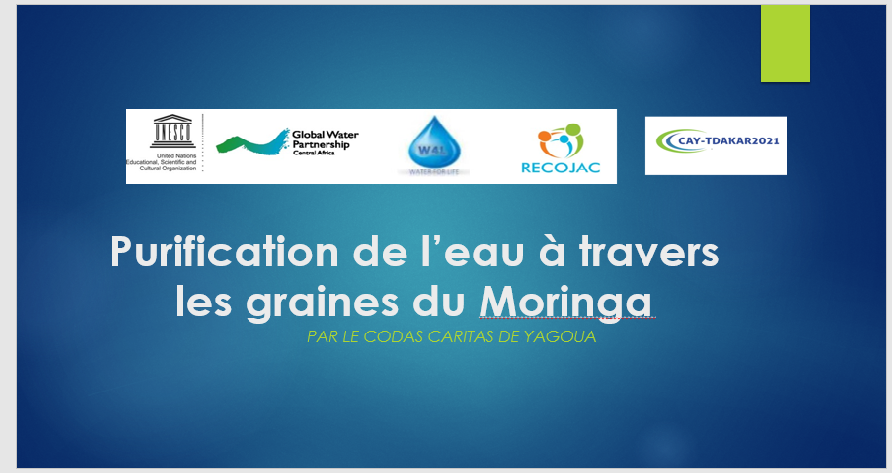 The second project Moboty Mayi from the Republic of Congo was developed based on the fact that 10-15% of the Congolese population lack access to quality drinking water. In response to this, the project seeks to increase within two years access to drinking water for 500 families - that is 3,000 people, in 40 villages and two neighborhoods This will be done using the Moboty generator which transforms water molecules in the atmosphere to portable water .
The second project Moboty Mayi from the Republic of Congo was developed based on the fact that 10-15% of the Congolese population lack access to quality drinking water. In response to this, the project seeks to increase within two years access to drinking water for 500 families - that is 3,000 people, in 40 villages and two neighborhoods This will be done using the Moboty generator which transforms water molecules in the atmosphere to portable water .
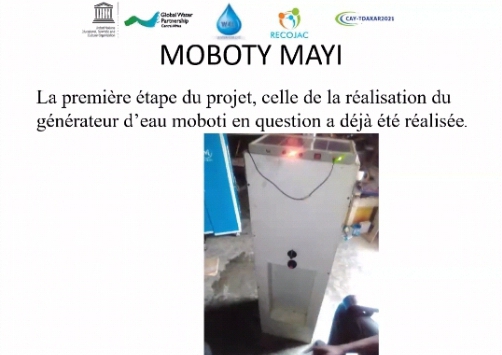
The final presentation was on the Guido’o project from Cameroon, which translates to "guiding to where there is water". The project’s goal is to assist the visually impaired in the fight against COVID-19 by facilitating their access to hand washing points. So far, part of the funding from UNESCO has been put into mapping out existing hand washing points in public spaces often visited by the project target audience.
Planned activities consists of installing water points (with censors), developing a mobile application to detect water points nearby , designing smart white canes with antennas that will send out a signal to its owner when there is water point nearby and training the visually impaired on how to use all the devices.
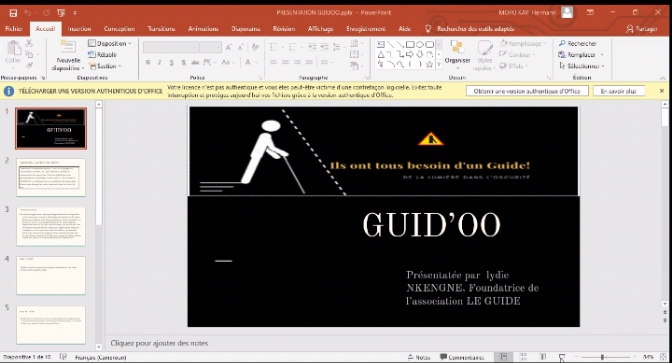 The second session of the workshop was a discussion with the youth cell of the World Water Forum during which the representative of the coordination cell in charge of youth participation , Madam Fatimatou Sall said, "Central Africa has taken a big step through the different projects presented which are being implemented within the perspective of an active participation at the forum. It is important that these initiatives are shared with other regions to allow their replication”.
The second session of the workshop was a discussion with the youth cell of the World Water Forum during which the representative of the coordination cell in charge of youth participation , Madam Fatimatou Sall said, "Central Africa has taken a big step through the different projects presented which are being implemented within the perspective of an active participation at the forum. It is important that these initiatives are shared with other regions to allow their replication”.
She also raised the problem of limited funding caused by COVID-19 and the withdrawal of several significant partners as a major constraint to youth participation at the forum. To address this, she suggested youths seek and capitalize funding opportunities drawing from the example of RECOJAC mobilizing funds from UNESCO.
 The election of the national and regional RECOJAC executives of followed this session during which new executives were elected for the Cameroon office notably: Ms. Sandrine Mbamba, Communications Officer, Mr. Djibrila Youssoufa ,Finance and logistics officer and Mr. Tatang Ronel, project manager.
The election of the national and regional RECOJAC executives of followed this session during which new executives were elected for the Cameroon office notably: Ms. Sandrine Mbamba, Communications Officer, Mr. Djibrila Youssoufa ,Finance and logistics officer and Mr. Tatang Ronel, project manager.
The workshop ended with a loud applause for the work done so far by RECOJAC and partners to ensure the active participation of Central Africa youth at the upcoming World Water Forum . Participants made recommendations at the level of each country to advance RECOJAC's mission of increasing youth engagement in the water and climate sector in Central Africa.
